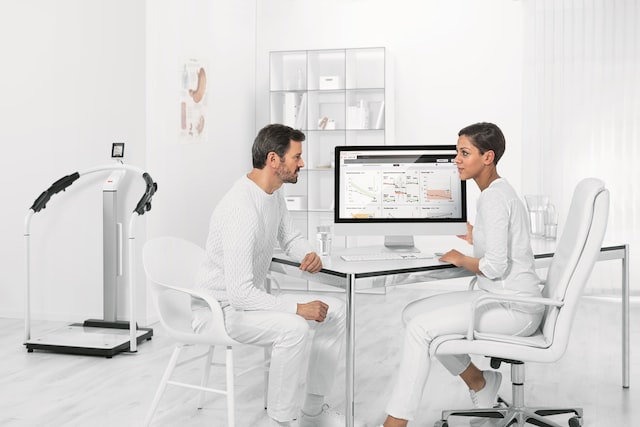Choosing the right electronic health record (EHR) can make your life as a mental health provider much more accessible. EHRs have many benefits, including sharing information between providers, tracking patients’ progress, and improving billing accuracy.
In addition, several options are specifically designed for behavioral health care professionals, including therapists, counselors, social workers, and more.
Why EHR Is Essential
Nearly 96% of non-federal acute care hospitals have certified EHRs. In the past decade, electronic health records (EHRs) have changed the way healthcare providers work. Our EHRs keep track of everything from prescriptions to patient notes, and they make it easier than ever to access your medical history.
Nowadays, it’s not uncommon for hospitals to use electronic records system that allows doctors to write notes on patient charts electronically rather than by hand. It also allows them to access patient records instantly instead of having to wait for paper copies or CDs containing information about their patient’s conditions and treatments.
This is great news for everyone! Not only does it mean that hospitals can provide better care faster with fewer errors, but it also means patients don’t have to spend as much time waiting around at the hospital because their doctors don’t need as much time between appointments reviewing old paperwork or looking up information online.
EHRs Cater To These Professionals
The list of professionals who can use EHRs includes:
- Psychologists, psychiatrists, and social workers – These professionals are often trained in a variety of human behaviors and can work to treat patients with mental health disorders. They may also have had training in therapy or counseling.
- Counselors – Similar to psychologists, counselors can help people develop healthy coping strategies for dealing with life’s challenges. Their work may involve individual or family counseling sessions.
They may also be involved with group therapy programs at hospitals or other institutions that provide mental health treatment services for those seeking help for their psychological issues (e.g., depression).
You’ll have to pay for each user if you’re interested in license-based software.
This type of software is more expensive than cloud-based options but often has more features. For example, a license-based program may offer advanced tracking systems that allow you to see how your patients are progressing over time, which could be helpful for making treatment decisions.
Another advantage of investing in license-based software is its flexibility.
If your practice grows or shrinks down the road, it’s easy to take on new users or remove them from the system so that no one gets left behind when someone leaves the practice.
Features To Look For In An Optimum EHR
You’ll want to consider the following features in your EHR:
- Ability to track patients, including their insurance and payment information.
- The ability to share information among providers. This will allow all parties involved in a patient’s care, such as therapists and psychiatrists, to access all relevant information at any time.
- It can also help avoid unnecessary visits or duplicated screenings if one doctor doesn’t know something another has already done for the same patient.
- A customizable design that makes it easy for staff members (such as nurses) and patients alike to use without feeling overwhelmed by unnecessary bells and whistles.
This is especially important for mental health practitioners who often work with people who don’t necessarily have computer skills; having an attractive but straightforward interface makes it easier for these patients’ caregivers not only to understand how everything works but also to take advantage of its benefits when conducting their daily routines.
With that being said, EHR adoption has grown rapidly, with the proportion of office-based physicians using an EHR nearly doubling between 2008 and 2016.
A study found that only about 30% of patients who were asked about their experience with their healthcare providers knew how to find out more information about the care they received. In this regard, having an optimum and efficient EHR is essential as it will prevent creating a gap in information.
Now, when it comes to choosing an optimum electronic health records service, there are several options that have been designed specifically for mental health care. And in this regard, the most optimum one will help run mental health practices smoother and more efficiently. It will cater to the unique and specific needs of the professionals and the industry as a whole. Whether it is a non-profit organization or a private, an efficient EHR will offer a suite of tools for all administrative and clinical needs.
Wrapping Up
With so many EHR options on the market, selecting one that’s right for you can be overwhelming. The good news is that the many choices available will suit your needs perfectly. We recommend spending some time researching the different types of software available so that you can find an option that works best for you and your practice.

































